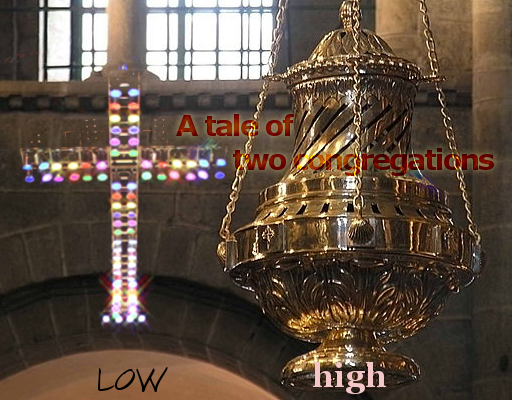Lots of words ending in “ism” are bad. Fundamentalism. Radicalism. Racism. Schism. But they’re certainly not all bad: Altruism. Prism. Arminianism.
Ecumenism is one of the things that gets bandied about as an intrinsically good thing. I’m a massive supporter of it: where possible, things should be done together with other Christians regardless of minor doctrinal differences. If we believe we make up one body, we certainly should act like it. That’s the idea behind ecumenism – and that sure is a great idea.

Photo: Bob Jones, reused under CC license
However, in branding an event “ecumenical”, or in trying to be deliberately ecumenical, we are not only recognising our differences, we are exacerbating them. A friend of mine, openly Protestant, once attended a Catholic fellowship group. As it turned out, all that was talked about was points of disagreement (Immaculate Conception, sola scriptura, etc.) Now all ecumenical events do not have to be like that. Thankfully, most insist on the commonalities rather than on the disagreements. Yet even then, if the event is branded as ecumenical, the denominational differences are likely to end up as the proverbial elephant in the room. The differences we try to bridge through ecumenism become all the more visible in the end.
Therefore, before we go out of our way to be openly ecumenical, we should make sure that there are differences between the groups involved, lest we create more divisions than we bridge. Worse still, if we do, we may make it impossible to do stuff together outside of the “ecumenical” label.
I fervently believe the aims of ecumenism (the visible unity of Christ’s people), just like those of mission, are best served by a “belong before you believe” attitude: unity will come from people from an unspecified variety of backgrounds hanging out together and just knowing each other as Christians. Crucially, denomination-membership is no prerequisite to hanging out together; and therefore, it is unlikely to be branded “ecumenical”. And a side effect of this is that there may not be many clearly defined theological statements.
Even in this approach, though, deliberate ecumenism can be dangerous. Not that the absence of a clear theological outlook means that the individuals see their own faith falter, or that the ecumenical action is devoid of any meaning. Of course not. Going to church does not mean celebrating all specific doctrinal points that the local church adheres to; or at least not every Sunday!
No – the potential danger concerns the rest of our activities, those done within the limited circle of our own local church and denomination.
I have been working in a school for the past year. Now in a school the staff is not made up of only teachers: there’s also admin, janitorial staff, pastoral care team, etc. Be that as it may, the teachers, naturally, tend to hang out together (this isn’t helped by the teachers having their specific staff room). Interaction between us and the rest of the staff often remains on a professional level. In the cafeteria, the teachers sit and eat together, and admin and the pastoral care team usually sit at another table.
I don’t like that separation. We are a team, and I feel this should not be limited to dealing with students. So I occasionally try to bridge that separation and deliberately spend more time with non-teachers. This makes it sound like it’s a chore, so let me insist that it isn’t! The staff at my school are all lovely and have been a true blessing to me this year.
But I’m left to wonder how it might feel to the teachers. When I’m deliberately eating at the non-teachers table, it also appears that I’m deliberately not eating with them. The time spent “ecumenically”, as it were, is also time not spent with my natural group. Now, in the case of my school, there is little tension between the two groups (outside of crises, of course); and so there’s no risk of being branded an apostate/traitor/heretic who’s defected to the other side.
Still, there were moments of unease or incomprehension as to why, say, I wasn’t eating with the teachers. They were short-lived, but they are telling of a crucial problem with ecumenism. When done indiscriminately, it can end up as a one-person initiative which ends up sowing discord within the individual groups themselves. This is how I had to walk the rather fine line between spending time with teachers and with non-teachers, gradually bringing the two together. Needless to say, this could not be done without the willingness of both the teachers and the non-teachers!
And so it is with ecumenism. It must not be done at the expense of the groups’ individual life, and must be grounded in both. If we are to be a bridge between two denominations, we cannot simply hover in thin air: we need foundations. On both sides. And for these foundations to be strong, it is vital that the ecumenical drive be not perceived as a departure, but as a bringing together.
Let us take the example of the recent vote, in the Church of England to have women bishops. Some voiced concerns that it would make unity with the Roman Catholic church more difficult. This unity is a laudable aim, but my contention is that, in this matter, it is secondary. Secondary because a large majority of the Church of England (as expressed in the synod votes) is in favour of women bishops and that it is an important issue to many within the CofE. Inner harmony comes before bridge building, or the bridge will lead to nothing.
 Photo credits: Wikimedia users
Photo credits: Wikimedia users 


